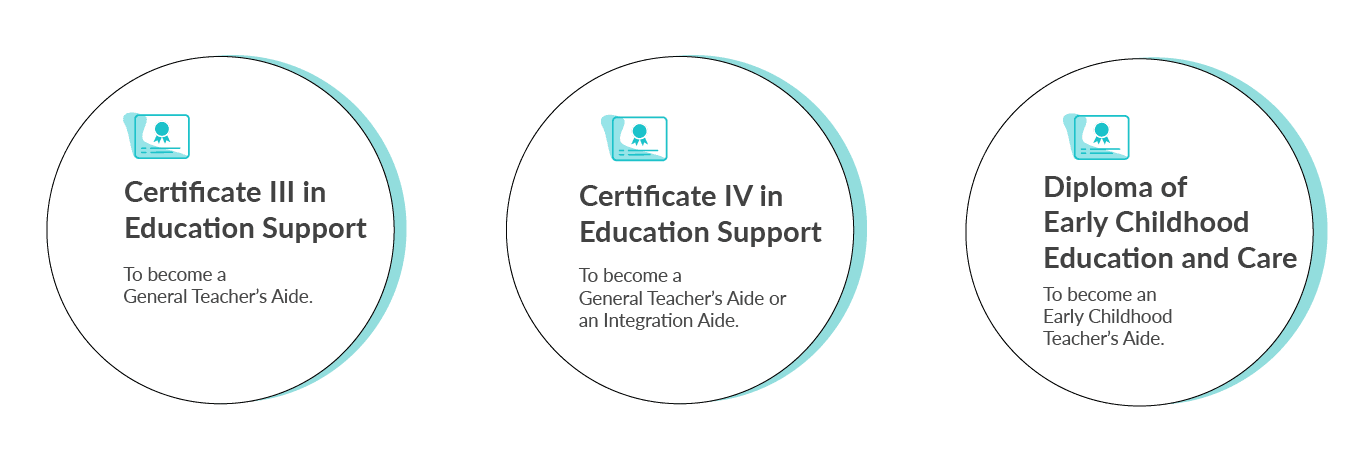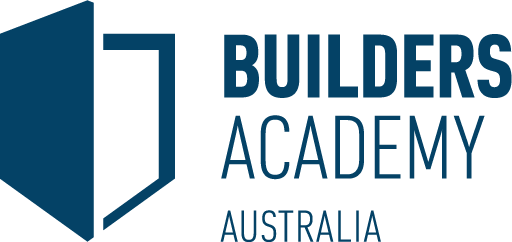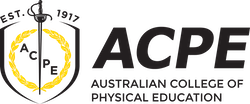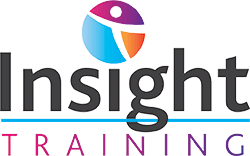What Does a Teacher’s Aide Do? 6 Insights By a Professional

Teacher’s aides are an integral part of Australia’s education system. They’re the people who ensure children of all capabilities progress, learn and feel supported at school. But, what’s it really like being a teacher’s aide? And, is it for you?

Meet Julie-anne Tran
Julie-anne is a full-time mother, a pink-haired, fun-loving adventurer, and a permanently contracted teacher’s aide. She completed her Certificate III in Education Support back in 2019 and has since dipped her toes into everything this diverse career path has to offer.
Julie-anne has always tended to “gravitate towards special needs kids”, and as such, found herself in a successful, fulfilling career as an integration aide.
We sat down with Julie-anne to learn all about this highly rewarding career and why “there’s nothing that you can’t do at school that isn’t fun”.
1. Teacher’s aide roles and responsibilities
The nuances of a teaching aide role will vary depending on your specific circumstances. However, the main purpose will always be to support children who are at risk of “falling through the cracks”.
These are the children both with confirmed intellectual disabilities and those struggling with more mild information processing issues. For Julie-anne, being an integration aide is all about getting “the same results from (her) little group of special children as a teacher would from the rest of the class. It’s just in a different way.”
There are common responsibilities that every teaching aide will be expected to take on, whether you’re a general teacher’s aide or an integration aide. These responsibilities include:
Ad hoc administration, organisational and lesson preparation tasks
Lesson planning and tailoring for one-on-one or small group learnings
Communication and liaising with other teachers, parents and health professionals
Supporting student learning while championing their independence and confidence
Behaviour and emotional management
Supervising children at play
Usually, teacher’s aides work on a contractual basis, offering a lot of flexibility for those who have other commitments. These contracts can be anywhere between three months to a year, which can often roll over into a second year. After two years at the same institution, teacher’s aides will automatically roll into an ongoing permanent position, much like Julie-anne.
2. Teacher’s aides are in demand
“There are many schools who need more than one aide in each classroom,” according to Julie-anne. The demand for more quality education aides shines through in the projected numbers. Currently, teacher’s aides make up 6.7% of the current early childhood education industry alone with an estimated job growth rate of 21.1% over the next five years, equating to 18,800 jobs.
The majority of teacher’s aides work part time with approximately 22% landing full time positions. This means most education aides are paid on an hourly basis, with an average hourly rate of:
3. Try everything to find your niche
There are multiple avenues for teacher’s aides. You could work in special development schools with students of moderate to severe disabilities, or work in traditional schools with children who fall on the spectrum or need extra support.
“I really suggest that everyone dip their toes into everything because it gives you a real idea of where you fit the best,” encourages Julie-anne.
She started her career as a teacher’s aide with special needs teenagers. In that role, she really focused her efforts towards providing clear cut structure and instructions, and working one-on-one with her students as their needs become more nuanced and complex.
Now, Julie-anne works with younger primary school aged children as an integration aide. In this context, she usually conducts small group lessons where she says there’s “a lot of forward thinking, a lot of being able to adapt” to better cater the teaching strategy for her children. Depending on the situation at hand, she may break off and work one-on-one with students who are particularly struggling.
No matter where you decide to direct your focus, Julie-anne emphasises that a school’s network is always there to support both the teacher’s aide and the child. “Everyone supports each other, because at the end of the day, the number one priority is the kids.”
Teaching Children with Special Needs: Complete Career Guide
4. The skills every teacher’s aide needs are skills you probably already have
When it comes to helping your students thrive in the classroom, Julie-anne identified the top three skills every teacher’s aide needs.

Creativity
To ensure all children reach critical education milestones, Julie-anne says teacher’s aides need to “think on their feet” and be creative in their approach as “not one size fits all”.
“We’re constantly planning ahead in our minds about how we are going to implement an activity or a task to our little network of students that need help,” she explains.
Every child learns differently, and children with special needs are especially particular in how they approach learning.
“You can have some students who are able to verbalise things really well. But then you can have a few students who aren’t very good at verbalising but are great at writing. You really have to modify a lot of things so they can get the same result, just in a different shape or form,” explains Julie-anne
Whether you work one-on-one or in small groups, teacher’s aides are always trialling new methods, strategies and approaches to teaching critical skills.
Communication
Not only must teacher’s aides be creative in their teaching strategy, but they also have to be able to communicate their intentions with absolute clarity.
Julie-anne says, “With special needs kids, everything is so black or white. There’s no in-between. They need to be able to understand completely as to why they are being asked to do something and what the process is.”
No matter the severity of the disability or processing issues, Julie-anne champions exceptional communication and perception. Teachers’ aides need to individualise how they explain activities and provide alternative ways children can demonstrate their understanding.
“It’s really about looking at every student as an individual and going, okay, how can these students present this information to me in their individual way?”
Patience
Just as students can become frustrated and overwhelmed, so too can the teacher. Sometimes your efforts won’t be met with the desired outcome, but Julie-anne identifies extreme patience paired with empathy to be a killer combo in overcoming these challenges.
“I remind myself when I have students who are having a rough time that they’re entitled to their feelings just as much as we are,” she says. “It doesn’t matter their age or their disability, or their background. They’re just little people with big feelings. We need to let them know that it’s okay to have these feelings, but there are positive ways to exhibit them.”
In collaboration with exceptional communication, Julie-anne suggests working with the student to overcome roadblocks in their learning.
“It’s very easy to go up to a student and ask, ‘How can I help you?’ A lot of people forget that they have needs too. There are things that they need to help them learn, and they know what these things are, but they’ve never had anybody ask them.”
How TAFE Can Help You Get Your Dream Teaching Job
5. Studying will open all the right doors — and keep them open

This qualification is considered the industry standard since it’s the minimum qualification required for the vast majority of teacher’s aide jobs.
In this certificate you’ll learn the basics of being a teacher’s aide. You’ll develop the technical skills necessary to perform a broad range of tasks, and work with children in a mainstream classroom.
Depending on which qualification you choose to complete, you’ll be expected to complete 100-120 hours of work experience. Julie-anne identifies her work experience to be one of the most integral parts of her training in becoming a teacher’s aide.
Work experience is all about applying what you learn during the course to real-life situations.
“We had specific things that we had to do in our placement for us to pass,” Julie-anne says. “We had to teach a certain thing to a small group. We also had to work with a specific child who has a disability or has difficulty learning while implementing the strategies we learnt during our course.”
On top of her studies and work experience, Julie-anne emphasises the value of personal development courses for staying ahead of the skills curve.
“ADHD is changing. Autism is changing. Everything is changing. We need to stay on top of things, which is why personal development is important.”
By complementing your teacher’s aide qualification with personal development courses such as a First Aid Certificate, CPR or Auslan Language class, you’re more likely to stand out from the crowd for future employers.
Free vs Paid Teacher’s Aide Courses: The Difference Explained
6. You’ll build relationships and make a difference
Julie-Anne’s love for her career comes from the relationships she builds with her students.
“You’re one of the first people they come to when there’s a problem because you created a relationship where they know that you’ll listen to them — you’ll hear them out. You will give them the time of day to hear what they have to say and then work with them to find a positive solution.”
Although not without its challenges, these hurdles often lead to the greatest sense of achievement.
“You really have to keep thinking and thinking all the time about your next move that can possibly help the student. When you overcome a learning hurdle with your student, you feel relieved. But there’s also that sense of achievement because you’ve created this strong bond with them.”
To take your first step towards this fulfilling career, explore Education Support and Early Childhood Education and Care courses
Browse Teacher’s Aide CoursesBrowse Education Results
Diploma of Nursing (SA Only) HLT54121
Build a meaningful career that makes a difference with the HLT54121 Diploma of Nursing. This nationally recognised qualification provides the essential skills, knowledge, and practical training needed to become a qualified Enrolled Nurse in Australia....




Certificate IV in Building and Construction (Building) (VIC Only) CPC40120
If you are an aspiring or working tradesperson, here is your foundation for success. This is your first step towards starting your own building business and preparing for the builders registration. We understand that you could be a busy tradie by day,...


Graduate Diploma in Management
The Graduate Diploma in Management is an online postgraduate qualification that is ideal for busy senior managers, with a potential entry pathway through any of our Graduate Certificates and study that is highly supported, fits into your schedule, and...


Graduate Certificate in Management
The Graduate Certificate in Management is an online postgraduate qualification that is designed for newer and ambitious professionals, with entry possible through management experience alone and a study structure that easily accommodates full-time work...


Diploma of Building and Construction (Building) (VIC Only) CPC50220
Prepare for registration as a Builder with the Diploma of Building and Construction (Building) (CPC50210) Gain the skills & knowledge to run your own business Study when it suits you – online & on campus options available...


Certificate IV in Plumbing and Services (VIC ONLY) CPC40920
This course covers common skills for the plumbing industry as well as specialist streams relevant to gasfitting, drainage, sewerage, roof drainage and more....


Bachelor of Dance Education (NSW Only)
The Bachelor of Dance Education is a unique specialist professional qualification and is Australia’s first–being delivered through ACPE! Units are provided by highly qualified and experienced professionals, empowering you with all the knowledge and ski...


Bachelor of Education (Physical & Health Education) (NSW Only)
The Bachelor of Education (Physical & Health Education) incorporates units in movement and health as well as curriculum and pedagogical studies, equipping you with the requisite skills for entering the teaching profession. If you are keen to pursue...


Associate Degree of Sport Business (NSW Only)
Get a higher education qualification in two years when studying full-time! Based on the Bachelor of Sport Business in terms of content, the Associate Degree of Sport Business offers students the opportunity to get into the workforce quicker or alternat...


Bachelor of Dance Practice (NSW Only)
The Bachelor of Dance Practice is a specialised degree that will equip you with the skills and experience to become a professional in the dance industry. The course develops artistry, choreography, performance, educational, business, and organisational...


Bachelor of Health Science (Exercise) (NSW Only)
The Bachelor of Health Science (Exercise) offers the perfect career path for those looking to enhance their knowledge and skills through further studies in physiotherapy, exercise physiology, and other health professions. You will come to understand ho...


Bachelor of Sports Coaching (Strength and Conditioning) (NSW Only)
To address the high demand for sport coaches and professionals in Australia, the Bachelor of Sport Coaching (Strength and Conditioning) is a specialist degree fostering the coaching, administrative, and professional skills necessary for a fulfilling ca...


Bachelor of Sport Business (Leadership)
Turn your passion for sport into a career by immersing yourself in a degree that will broaden your theoretical and technical knowledge, so that you are fully equipped fora management role within the sport industry. The Bachelor of Sport Business (Leade...


Certificate III in Fitness SIS30321
If you’re looking to begin your career in the fitness industry, studying the SIS30321 Certificate III in Fitness is the perfect qualification to get you started. Gain all the knowledge and skills you need to enter the industry as a Gym Instructor or Gr...


Personal Trainer Course SIS30321,SIS40221
Join the fitness industry as a Personal Trainer and turn your love for fitness into a rewarding career by graduating in both the SIS30321 Certificate III in Fitness & SIS40221 Certificate IV in Fitness. Enjoy the flexibility of being your own boss...


Certificate IV in Fitness SIS40221
Take the next step in your career and gain the qualification you need to become a Personal Trainer. If you currently work in the fitness industry as a Gym or Group Fitness Instructor, elevate yourself to the next level by studying the SIS40221 Certific...


Bachelor of Health Science (Naturopathy)
Naturopathy is a whole medical system combining theory (philosophy and principles) and practise that uses an array of natural therapies to support healing and maintain health. Naturopaths aim to treat the underlying causes of illness and disease. The c...


Bachelor of Health Science (Clinical Nutrition)
Clinical nutritionists integrate traditional food wisdom and current scientific evidence to motivate individuals and communities to eat well and live healthier lives. The Bachelor of Health Science (Clinical Nutrition) is supported by a strong underpin...


Certificate III in Individual Support (Ageing OR Disability) (Perth Only) CHC33021
If you have a passion for helping those most in need, this qualification is one way you can utilise your knowledge for the benefit of others. Package the Certificate III in Individual Support (Ageing or Disability) (CHC33021) to save time and gain know...


Certificate lll in Early Childhood Education & Care (Perth Only) CHC30121
If you love working with children and want to learn more about providing quality education and care in a range of environments, this course is for you. The Certificate lll in Early Childhood Education and Care (CHC30121) can provide you with an entry-l...




